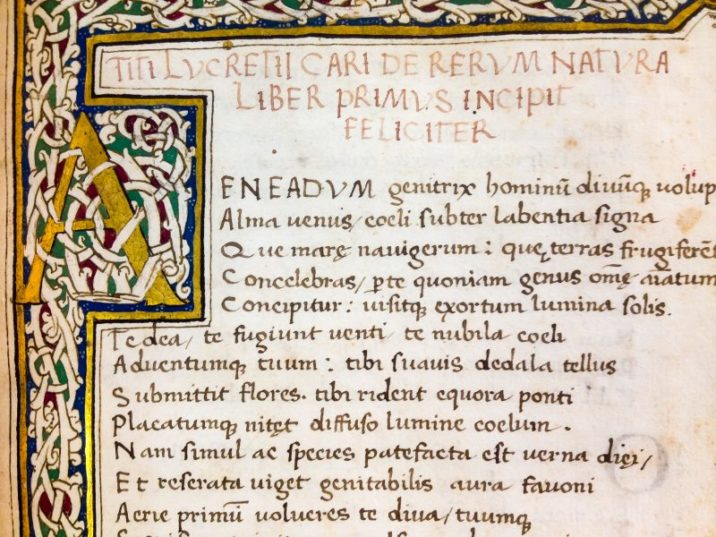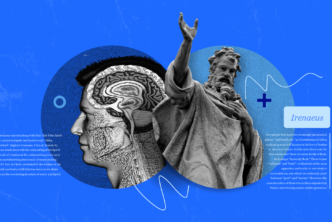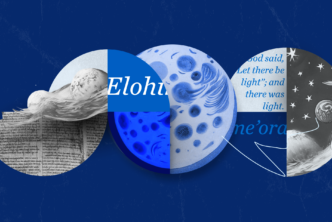
Latin is a language that I picked up during my PhD studies, and it has proved useful and enjoyable. I wish that I had learned it as a youth, which is why I’ve begun teaching Latin to my children. But if you’re reading this article, I’m guessing you’re well past 8 years old, and thus in need of some motivation beyond parental obligation. Consider this, then, a call to arms for adult learners of the most useful dead language still around.
Whether you are an established scholar or a seminary student knee-deep in Hebrew and Greek already, here are six reasons why you need to begin learning, reading, and perhaps even speaking Latin tomorrow morning. Below, I will suggest the most important resource you could ever own as a student and reader of Latin.
1. Latin is the language of theology
Most authors of the first 1500 years of the church wrote in Latin, including Jerome, Augustine, and Aquinas. The Reformers often taught and wrote in Latin. The language of theology has been Latin for most of the Western church’s existence, from Antiquity to the Middle Ages, the Renaissance and beyond. Indeed, if you hope to fully comprehend the commentaries of the previous generation (just read any of the ICC series) or read classic works from Christian authors since the Reformation including many of the Puritans and Barth, you’ll need to know your Latin to comprehend their numerous citations of classical works of theology and philosophy.
2. Latin is the key to the Classics
Some of the greatest works of ancient literature were written in Latin. To know Latin is to gain access to the mind of Caesar, Cicero, Virgil, Pliny, Ovid, and Seneca. Latin also enables one to read the Vulgate, Jerome, Athanasius, and Tertullian, to name a few. In fact, if you’re disciplined and motivated, you can give yourself an entire classical education without ever setting foot in the halls of Oxford: how you like them apples?
3. Latin is the means to intellectual vigor
The study of Latin is useful precisely because it is a “dead” language. It enables its students to enter the ancient world and to dwell there, far beyond what any translation into modern English can offer. Latin lays a foundation for robust thinking rooted in the great texts of Western civilization. The study of this not-so-dead language builds intellectual rigour that just keeps growing with use.
4. Latin is the bedrock of modern languages
Because Latin is learned not (primarily) through speaking but through an understanding of the mechanics of grammar, students are equipped to master many modern languages. This is true even for non-Romance languages, where many rules of grammar still apply. If you are an American or a Brit, you have even more reason to learn Latin: the majority of us are shamefully monolingual, which is quite an embarrassing fact given the multilingual capabilities of most of our scholarly contemporaries from other countries and regions of the world. At least since Latin isn’t spoken anymore you won’t have to embarrass yourself as when asking directions in France, in French.
5. Latin is the perfect complement to Koine Greek
Both Latin and Greek were in use at a critical juncture in history, the first century CE. Although the languages later split geographically, Latin to the West and Greek to the East, they influenced each other for centuries. Both languages complement one another in grammar and overlapping vocabulary. If you know Greek, but don’t know Latin, don’t dismiss me yet: from Latin came a number of modern languages, including French, Spanish, and Italian; Greek, on the other hand, gave birth to far fewer progeny.
6. Latin is the adventure you’ve been waiting for
The best analogy I could think of for committing yourself to the daily study of Latin is if you were to make a decision to take a long hike every morning outdoors. Reading texts in Latin, albeit slowly at first, is akin to advancing further forwards and upwards along a mountain ascent. The paths are simple at first, meandering slowly upwards amongst blossoming meadows.
As you progress, however, the climbing gets steadier and harder, yet at the same time, the vistas become grander. Although you will get lost in the woods now and again, you will also periodically emerge at the edge of a glistening mountain lake, tired but refreshed, elated with the progress that comes with dedicated hard work. There aren’t many things in life that could compete with studying Latin every morning before the rest of the day’s troubles encroach. Start every day with a walk through difficult but rewarding terrain and begin an adventure that will last a lifetime.

My personal guarantee to you is that your scholarly research and writing will flourish with the Oxford Latin Dictionary to hand. But don’t take my word for it; listen to what others have said:
By far the most scholarly, reliable, and convenient bilingual dictionary of its scope for any language. The Latinist cannot live without it. — American Notes and Queries
Indispensable for any serious, advanced study in Latin language or literature, and a must for the reference collections of academic and research libraries. — American Reference Books Annual
This massive resource (2 volumes and 40,000 headwords in print) is an absolute must for the student of Latin, much as HALOT, DCH, LSJ, and BDAG are the primary lexical resources for students of Hebrew and Greek.
Because the Oxford Latin Dictionary is currently under development for digital use on Logos, you can get this resource for only $288.99, instead of the later price of $359.99. If you were to buy the print editions (which are not integrated with your entire Logos library, nor instantly searchable) you would pay $450.
Help get the Oxford Latin Dictionary published on Logos, and start tomorrow morning with a walk up the mountain.






